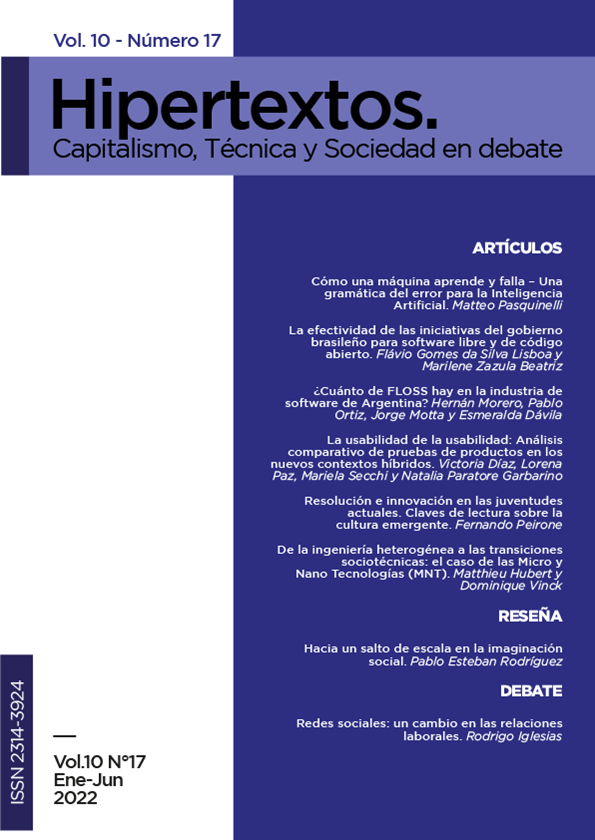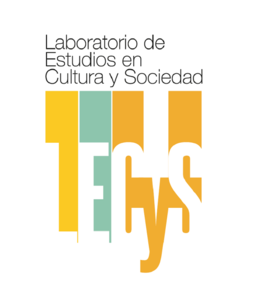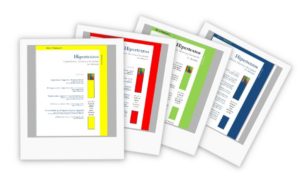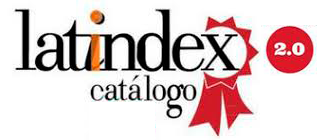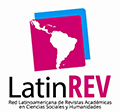How much FLOSS is there in Argentina's software industry?
DOI:
https://doi.org/10.24215/23143924e048Keywords:
software sector, free and open source software, innovation, firmsAbstract
This article aims to provide statistics for the Argentine case on the relevance of FLOSS (Free/Libre Open Source Software) at the business production level. This is done based on a descriptive analysis of the "III Survey on Innovation in the Software Sector in Argentina 2019". Firstly, the degree of importance of FLOSS at the production and sales level in the sector is evaluated. Secondly, it is presented what kinds of FLOSS are performed by the Argentine companies surveyed in the survey. Finally, a series of behavioral and performance aspects (in terms of linkages, innovation and training) are compared between FLOSS and non-FLOSS companies. The article concludes that most of the software companies in the sample produce or use free or open source software. And that there are no statistically significant differences in size, behavior or performance between companies that produce and/or provide services based on FLOSS and non-FLOSS.
Downloads
References
Benkler, Y. (2017). Open access and information commons. In F. Parisi (Ed.), The Oxford Handbook of Law and Economics (pp. 256). Oxford University Press.
Berdou, E. (2010). Organization in open source communities: At the crossroads of the gift and market economies. Routledge.
Bonaccorsi, A., Giannangeli, S., y Rossi, C. (2006). Entry strategies under competing standards: Hybrid business models in the open source software industry. Management Science, 52(7), 1085-1098.
Bonaccorsi, A., y Rossi, C. (2003). Why Open Source software can succeed. Research Policy, 32(7), 1243-1258. https://doi.org/https://doi.org/10.1016/S0048-7333(03)00051-9
Bonaccorsi, A., y Rossi, C. (2006). Comparing motivations of individual programmers and firms to take part in the open source movement: From community to business. Knowledge, Technology & Policy, 18(4), 40-64.
Capiluppi, A., Stol, K.-J., y Boldyreff, C. (2012). Exploring the role of commercial stakeholders in open source software evolution. IFIP International Conference on Open Source Systems,
Capra, E., Francalanci, C., Merlo, F., y Rossi-Lamastra, C. (2011). Firms’ involvement in Open Source projects: A trade-off between software structural quality and popularity. Journal of Systems and Software, 84(1), 144-161. https://doi.org/http://dx.doi.org/10.1016/j.jss.2010.09.004
CENATIC. (2011). El Software Libre en el Sector Español de Servicios Informáticos. Informe de resultados de la Encuesta sobre el Software de Fuentes Abiertas en el sector SI español (ESFA-SI) 2010-2011.
Colombo, M. G., Piva, E., y Rossi-Lamastra, C. (2013). Authorising Employees to Collaborate with Communities During Working Hours: When is it Valuable for Firms? Long Range Planning, 46(3), 236-257. https://doi.org/http://dx.doi.org/10.1016/j.lrp.2012.05.004
Colombo, M. G., Piva, E., y Rossi-Lamastra, C. (2014). Open innovation and within-industry diversification in small and medium enterprises: The case of open source software firms. Research Policy, 43(5), 891-902. https://doi.org/http://dx.doi.org/10.1016/j.respol.2013.08.015
Dahlander, L., y Magnusson, M. (2008). How do Firms Make Use of Open Source Communities? Long Range Planning, 41(6), 629-649. https://doi.org/http://dx.doi.org/10.1016/j.lrp.2008.09.003
Dahlander, L., y Wallin, M. W. (2006). A man on the inside: Unlocking communities as complementary assets. Research Policy, 35(8), 1243-1259. https://doi.org/http://dx.doi.org/10.1016/j.respol.2006.09.011
Dalle, J.-M., y Jullien, N. (2003). ‘Libre’software: turning fads into institutions? Research Policy, 32(1), 1-11.
Hauge, Ø., Sørensen, C.-F., y Conradi, R. (2008). Adoption of open source in the software industry. IFIP International Conference on Open Source Systems,
Hippel, E. v., y Krogh, G. v. (2003). Open source software and the “private-collective” innovation model: Issues for organization science. Organization science, 14(2), 209-223.
Juncos, I., y Borrastero, C. (2020). Grandes corporaciones de software y el FLOSS: cooperar en entornos abiertos como estrategia de competencia. In H. Morero & J. Motta (Eds.), La economía del software libre y open source: Multinacionales, Pymes y Comunidades. Estudios Sociológicos Editora.
Kogut, B., y Metiu, A. (2001). Open‐source software development and distributed innovation. Oxford Review of Economic Policy, 17(2), 248-264.
Lakhani, K., Wolf, B., Bates, J., y DiBona, C. (2002). The boston consulting group hacker survey. Boston, The Boston Consulting Group.
Lee, G. K., y Cole, R. E. (2003). From a firm-based to a community-based model of knowledge creation: The case of the Linux kernel development. Organization science, 14(6), 633-649.
Lerner, J., y Schankerman, M. (2013). The comingled code: Open source and economic development.
Morero, H., Motta, J., Manzo, F., y Gutierrez, D. (2019). El abordaje económico y productivo del FLOSS y su participación en la industria del software de la Argentina XXI Red Pymes Mercosur, Rosario, Argentina.
Morero, H. A. (2020). Conceptos esenciales para el abordaje económico y productivo del FLOSS. In H. A. Morero & J. Motta (Eds.), La economía del software libre y open source : multinacionales, pymes y comunidades. Estudios Sociológicos Editora.
Morero, H. A., y Motta, J. (Eds.). (2020). La economía del software libre y open source : multinacionales, pymes y comunidades. Estudios Sociológicos Editora.
Nakakoji, K., Yamamoto, Y., Nishinaka, Y., Kishida, K., y Ye, Y. (2002). Evolution patterns of open-source software systems and communities. Proceedings of the international workshop on Principles of software evolution.
Nikula, U., y Jantunen, S. (2005). Quantifying the interest in open source system: case south-east Finland. Proceedings of the 1st International Conference on Open Source Systems (Scotto, M. and Succi, G. Eds.).
O’Mahony, S. (2003). Guarding the commons: how community managed software projects protect their work. Research Policy, 32(7), 1179-1198. https://doi.org/http://dx.doi.org/10.1016/S0048-7333(03)00048-9
Raymond, E. (1999). The cathedral and the bazaar. Musings on Linux and Open Source by an Accidental Revolutionary. O'Reillly.
Robert, V. (2006). Restricciones en la difusión de tecnologías abiertas. La difusión de software libre en la Argentina. Tesis de Maestría, UNGS.
Rossi, M. A. (2006). Decoding the free/open source software puzzle: A survey of theoretical and empirical contributions. In J. Bitzer & P. Schöder (Eds.), The Economics of open source software development (pp. 15-55). Elsevier.
Schaarschmidt, M., Walsh, G., y von Kortzfleisch, H. F. (2015). How do firms influence open source software communities? A framework and empirical analysis of different governance modes. Information and Organization, 25(2), 99-114.
Smith, B. L., y Mann, S. O. (2004). Innovation and intellectual property protection in the software industry: an emerging role for patents? The University of Chicago Law Review, 241-264.
Zanotti, A. (2014). El software libre y el campo de producción cordobés: agentes, comunidades, disputas Tesis Doctoral. Doctorado en Estudios Sociales de América Latina, Universidad Nacional de Córdoba, Argentina.
Downloads
Published
How to Cite
Issue
Section
License

This work is licensed under a Creative Commons Attribution-NonCommercial-NoDerivatives 4.0 International License.

